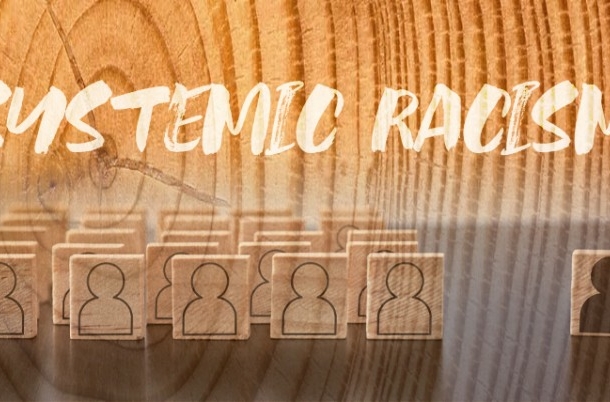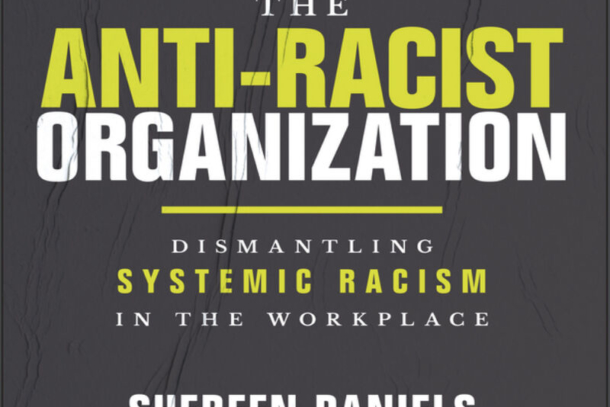All forms of bigotry are not alike. The roots of each form of discrimination and hatred are different. Most are rooted in society’s need to create demonic and degraded “others.” Racism, however, is unique in its practice and impact. Intersection with other vulnerabilities is possible to bring additional pain to the victims of racism. But racism, as with all “isms,” is an established system like capitalism, socialism, communism, and fascism.
Unfortunately, many are in denial of racism, particularly the existence of systemic racism. No wonder the media rushes to cover individual acts of bigotry, such as the media getting ablaze with Don Cherry’s racist rant, while largely ignoring the larger issue and evidence of widespread systemic racism in healthcare, criminal justice, education, or employment. For example, where is the outrage over the release of the Portrait of Ottawa’s Black Community.
Systemic racism is there to stay so long as the bigger problem of institutional injustice remains off the media’s radar screens. Victories against personal bias will remain largely irrelevant because it is that larger racial inequity that so often contributes to implicit personal bias. As evident from the comments section of this piece in Ottawa Citizen, ignoring the problem of institutional injustice gives the impression that those on the bottom of the social and economic structure must have something wrong with them.
Despite the glaring data about inequity, brushing aside systemic racism and its profound impact is not healthy for progress; all talk about racism and allocations of funds notwithstanding. If we are interested in making our work successful in creating a society of justice in which one’s skin colour or continental ancestry is of no consequence in determining one’s station in life; we must begin with learning to challenge the denial of systemic racism because that is a key contributing factor to sustaining it.
To enrich our understanding and help others see the existence of systemic racism, I strongly recommend Speaking Treason Fluently but Tim Wise. We can’t address a problem unless we see and acknowledge it. Tim has broken down the denial of systemic racism in four primary ways for easy understanding – with plenty of examples from the United States. However, the way the majority seeks to downplay the extent of systemic racism and limit the accomplishment of its victims are the same in Canada.
The book describes the following four primary ways the denial manifests itself in detail. I have pulled some quick references/examples to encourage further reading and learning.
1) Minimisation: Examples:
- Downplaying the problem.
- Making molehills of mountains of discrimination and inequity.
- Accusing victims of “playing the race card,”
- Focusing on the bigotry of individuals and ignoring larger structures and institutional inequity.
- Claiming, “People of colour are obsessed with race.”
2) Rationalisation: Acknowledging that racial bias is real, but then seeking to change the subject or justifying its existence with science, psychology, and other information. Examples:
- Blaming the victims for white indifference.
- Denying the intergenerational phenomenon.
- Saying, “Sure, we are racist, but so what? Others are too.”
- “There’s nothing we can (or should) do.”
- “There are so many other forms of discriminations we have to deal with.”
- “What about Oprah?”
3) Deflection: examples:
- Passing the buck.
- Refusing to take personal responsibility for one’s own actions and the actions of one’s nation.
- Seeking to change the subject to condemnation of rap music and cultural defects within the black/brown community.
- “They should take personal responsibility.”
- “Bias towards immigrants has nothing to do with racism.”
- “Racism in only interpersonal, not institutional or social.”
- “It’s only a handful of bad apples.”
- Listing reasons for being racist.
- “Racism will always be with us, so it’s a waste of time to talk about it.”
- “Racism isn’t holding blacks back; it’s their own laziness!”
- “Blacks are better off here than they’d be in Africa.”
- “There is more racism in your home countries.”
Remember this tip: We cannot dismiss injustice in one place or render it unworthy of rectification just because another injustice of equal or even greater magnitude is happening elsewhere.
4) Competing victimisation: Manufacturing white victimhood. Reinforcing white fear. Feeding racism resentment. Examples:
- Complaining about “reverse racism.”
- “We are not encouraged to have white pride.”
- “If we can address class inequality, racial inequity will take care of itself.”
- “How dare you say that I have privilege just because I’m white. My family had nothing; we lived in neighbourhoods where we were the only white people around, and I got called a white bitch by black girls every day, and got beat up regularly by black kids on my block. How dare you say that I had advantages being white. That’s bullshit!”
- It is not that ALL whites have easy lives.
Remember this tip: It’s just that as a general rule, to be white confers advantage, just like being rich, or male, or straight, or able-bodied does, relative to those who are poor, women, LGBT, or disabled.”
Also Remember: Even if we admit that the less powerful group in a society occasionally does something wrong to the more powerful group, and even if we argue that members of the more powerful group occasionally face injustices, bigger institutional injustice and discrimination still remains intact.
We must not ignore systemic racism because ignoring makes it normal. Of course, there is resistance, but we need more education and awareness to counter that.
Unfortunately, we have brushed the glaring inequities and discrimination around us under the rug. Now, anything that deviates from our “normal” stands out like an evil monster to us, eliciting severe hatred – hatred that appears justified to those responsible for making the inequity normal because their implicit assumptions have gone unquestioned for so long.



